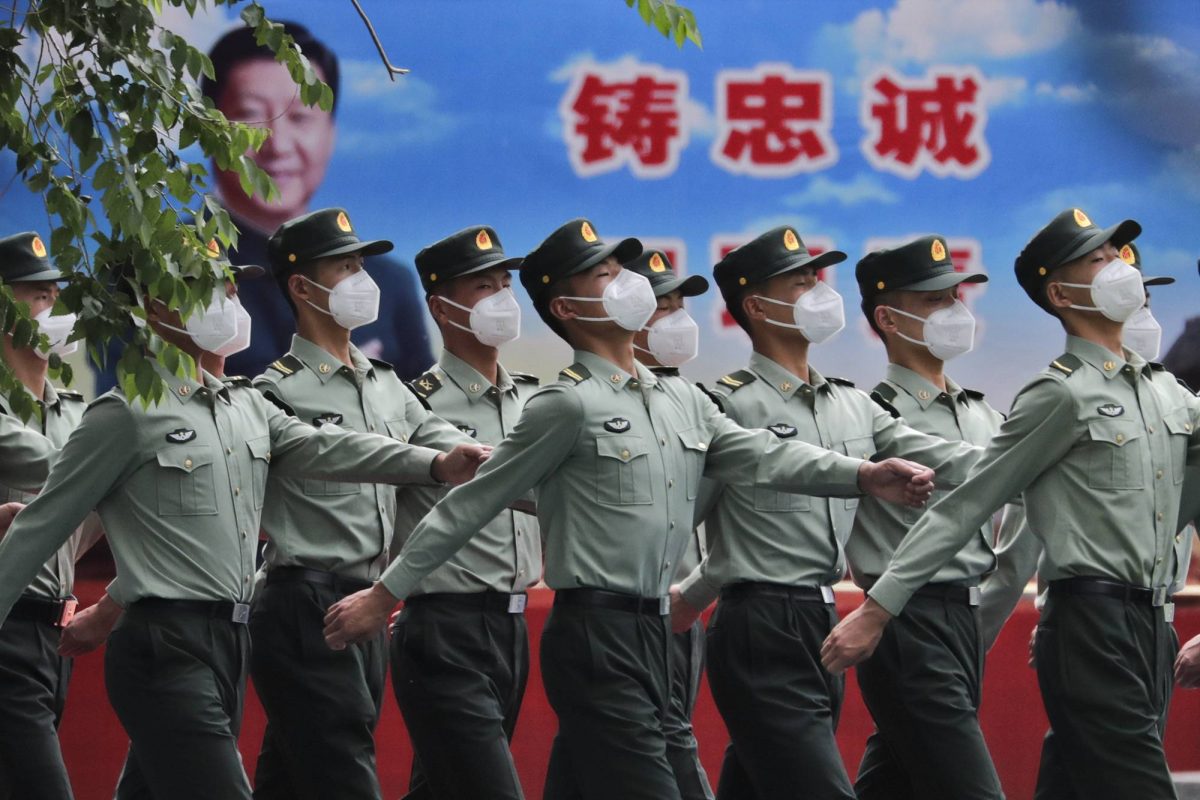After reading the New York Times article about the proposed defunding of CISA, our nation’s cyber defense agency, I can’t help but question why Americans hate the Chinese. Our national security adviser, Mike Waltz, talks about projecting American power against other nations in the name of offense. Senator Mike Warner of Virginia refers to the Chinese as the “boogeyman,” saying that it “makes Americans less safe.” And that’s only one page of a New York Times article. Imagine all the negative feelings toward China held by millions of Americans — a label I use for myself, sometimes with pride, sometimes with gloom.
When I hear China spoken of as an enemy, I fall into the latter category. I only begrudgingly say that I’m American, and I recite the Pledge of Allegiance knowing full well that many of my classmates, teachers, and neighbors don’t like China.
The New York Times article, “Trump’s Firings Erode Cyberdefenses as the Nation’s Election Faces a Growing Peril,” explains — through sometimes dense writing — how President Trump’s slashing of cyber defense funding could have serious consequences for election security, intelligence operations, and other cybersecurity programs. It details various responses to this change, with most of the experts — such as Jason Healey, a cybersecurity specialist at Columbia University — expressing concern that these decisions will weaken the core systems that support our democracy. The article also includes statements from state officials like Al Schmidt (Secretary of State of Pennsylvania), Jenna Griswold (Secretary of State of Colorado), and Ricky Hatch (County Clerk of Weber County, Utah). Despite differing political affiliations, they all agree: the loss of funding will erode our election systems. They also point to China — that word loaded with tension, fear, and fury — as the alleged source of cyber intrusions into U.S. telecommunications.

I have no problem supporting election security; democracy is the lifeblood of a healthy, prosperous, and sane nation. What I do have a problem with is the labeling. I don’t like the eerie silence that descends on the classroom when my teacher mentions China, or the way people assume Chinese people eat dogs, or how skinny Chinese boys are labeled “gay.” Personally, although the goal of national security may be justified, it often feels like adding fuel to a fire. If federal, state, and local officials can lash out at China with an undertone of contempt, what’s stopping young people — whether in rural Idaho, metropolitan New York City, or suburban Alabama — from turning that contempt onto their Asian American classmates?
When someone says the word “China,” every face turns to me. The only time I’ve ever been “famous,” if you can even call it that, was when classmates would tilt their heads, narrow their eyes, and look at me as if to say, “Look what you’ve done. I hate you.”

This is not just my perception. During the onset of the COVID-19 pandemic, anti-Asian discrimination surged. It was like cherry blossoms blooming, except the real ones were already dead. Elderly women getting attacked on the street still haunts me. Seeing my own mother avoid Chinatown — the last remaining thread of her home country, the last place to find comfort food — gives me a headache that needs no food poisoning to trigger.
In such a world — if you were in my shoes, as an Asian male still mocked as “gay” despite being straight, who feels like a flamingo in the tundra, whose father was ignored after falling in Times Square, likely because of his skin color — the association of China with hatred is only growing.
And that’s deeply concerning.








